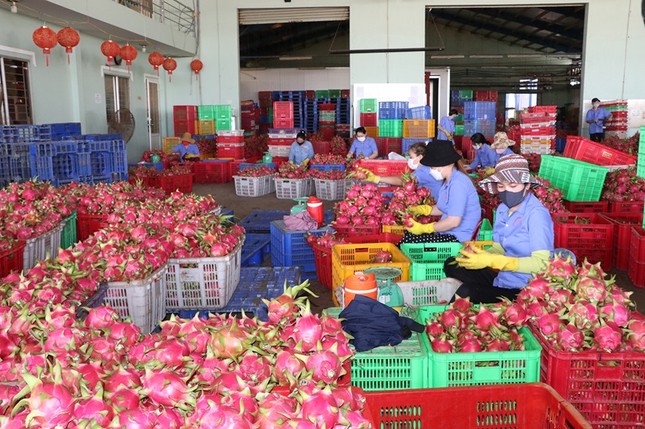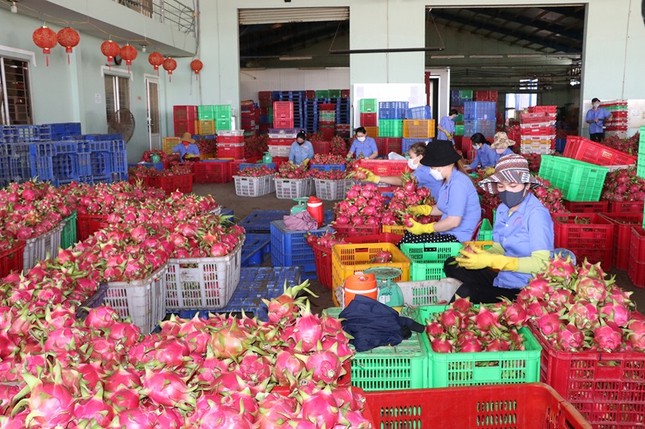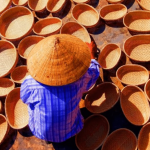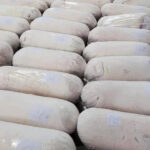EU Tightens Control: A Warning for Vietnam’s Agricultural Exports
According to statistics from the National Notification and Enquiry Point for Sanitary and Phytosanitary Measures in Vietnam (SPS Vietnam), there has been an unusual increase in the number of food safety violation warnings from the EU market in the first six months of the year, with a total of 57 alerts, a rise of over 80% compared to the same period last year.
This has led to the EU increasing border check frequencies for agricultural exports from Vietnam. Currently, four agricultural products are subject to stricter controls, including dragon fruit (30%), chili peppers (50%), yardlong beans (50%), and durian (10%).
In an interview with Tien Phong, Mr. Dang Phuc Nguyen, Secretary-General of the Vietnam Fruit and Vegetable Association (Vinafruit), expressed his concern. Despite Vietnam’s record-high fruit and vegetable exports in the first half of the year, this serves as a warning bell regarding the compliance with food safety regulations for Vietnamese agricultural produce.
Mr. Nguyen highlighted that the EU spends approximately 35 billion Euros annually on fruit and vegetable imports, making it the largest market for these products worldwide. While Vietnam’s agricultural exports to the EU have significantly increased, it currently ranks 27th among fruit and vegetable exporters to the EU, with a modest 1% market share.

Dragon fruit exports to the EU remain under 30% frequency control.
Notably, many Vietnamese agricultural products exported to the EU lack consistency. Issues such as inadequate food safety and hygiene, pesticide residues, and heavy metal content remain significant challenges. Several Vietnamese fruit and vegetable exports to the EU, including chili peppers, basil, cinnamon, and dragon fruit, have been repeatedly warned about their quality.
“If this situation persists, it could damage the reputation of Vietnamese agricultural products in the EU market and globally,” Mr. Nguyen warned.
Representing Vinafruit, he emphasized that the EU’s sanctions for violations related to food safety and biosecurity are becoming increasingly stringent. Goods found to violate mandatory EU import requirements risk being returned or destroyed on the spot.
In some cases, if the frequency of violations is high, the EU may implement stricter measures, such as increasing inspection frequencies and rates or even banning imports from the EU market for a period. At one point, the EU warned that it would prohibit the import of Vietnamese fruit and vegetable products if five batches were found to be non-compliant.
“Currently, many Vietnamese fruit and vegetable products have the potential to increase their market share in the EU, such as passionfruit, dragon fruit, durian, mango, and spices. Businesses need to pay closer attention to complying with food safety regulations and improving product quality control to avoid warnings that could impact the entire industry,” Mr. Nguyen advised.
Lack of Strict Control May Lead to Increased Inspections
Ms. Hoang Thi Lien, Chairwoman of the Vietnam Pepper and Spice Association, stated that based on the data regarding the number of batches warned in the spice industry, Vietnam needs more effective coordination between the managing agency, enterprises, and associations to handle issues like returned batches.
Ms. Lien recommended that, in addition to monitoring and updating information on government websites, enterprises should also pay attention to SPS information from the EU to stay informed about all products. This way, they can learn from the experiences of competing batches from other countries that have been warned.
According to the Plant Protection Department of the Ministry of Agriculture and Rural Development, the increase in warnings for Vietnamese agricultural imports into the EU is due to many export enterprises not genuinely complying with the regulations of the importing country. Additionally, producers in some areas still lack measures and plans to use pesticides, antibiotics, and fertilizers as directed.
Therefore, to reduce violations, both producers and enterprises need to pay attention to regulations and standardization, starting from the growing areas to the production and export processes.
If timely solutions are not implemented, Vietnam’s agricultural, food, and aquatic product exports are at risk of facing increased border checks according to EU regulations, impacting exports and intensifying international market competition.
The Plant Protection Department advised that the EU constantly reviews and amends its regulations. Therefore, exporting enterprises should access information sources to stay updated and reduce risks in their export activities.
The most extensive bribery case ever in Thanh Hoa: Numerous suspects prosecuted for “Giving and Receiving Bribes”
The Provincial Security Investigation Agency (PSIA) of Thanh Hoa province announced on January 31st that it has made the decision to initiate a prosecution against 23 individuals in connection with the offenses of “Accepting bribes” and “Giving bribes” as stipulated in Article 354(3) and Article 364(2) of the Criminal Code.
“Prosecution of government officials, land registration officers, and tax department employees in the largest bribery case ever”
The Thanh Hoa Police Investigative Agency has initiated legal proceedings against 23 individuals involved in the crimes of “Bribery” and “Receiving bribes”. This is the largest bribery case in terms of the number of suspects ever discovered and apprehended by the Thanh Hoa Police.





















